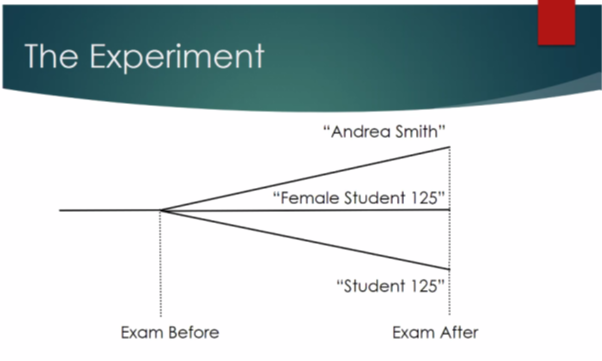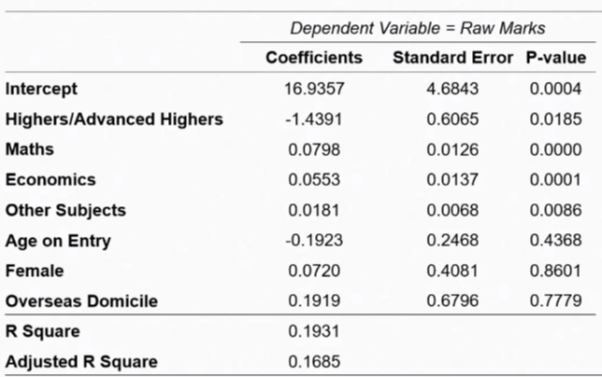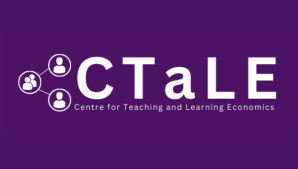
Author: Xuyi Wang
BSc Economics Y3
TeachECONference2021 Student Partner
Following a very successful first-ever TeachECONference in 2020, the Centre for Teaching and Learning Economics (CTaLE) has returned in 2021 with an expanded format. Accounting for many issues teachers have faced with online teaching, the speakers presented thought-provoking topics, ranging from lessons learned in the pandemic to the ways to help students succeed in economics. Moreover, this conference has connected many experiences around the world, bringing dynamic conversations that will shape how economics is taught in the future.
TeachECONference2021 Helping Student Succeed in Economics session.
Beyond students’ academic results or fancy internships, there are many other factors that determine ‘success’ in their degrees, for example, their emotional journey and the connections they make at university. With these priorities in mind, universities have emphasized in-person induction weeks as a way to build community at the beginning of the year, but during times of COVID-19, how can one cultivate an engaging community but also limit information overload at the same time? In the pursuit of this balance, Andrew Mearman and Juliane Scheffel from the University of Leeds tried a unique induction week strategy. To begin with, they presented a central resource called ‘Getting Started at Leeds’, a platform specifically designed to ensure a coherent induction. Coupled with this, they designed the structure of their induction week so as to limit information overload, and they also posed an innovative challenge to students, with the end of community building. Speaking from my experience, I understand that many students might not be in the adequate headspace to absorb all the information they get during the induction week, and this problem is multiplied as the information comes through different channels such as moodle, email, and in-person sessions! Therefore, I believe that ‘Getting Started at Leeds’ is something other universities should try to replicate.
As for academic performance, it has been proven that studying small chunks of content across a long period of time is more efficient for content retention than craving the content in a couple of days. However, to many teachers’ frustration, most students follow the latter pattern and studies have shown that COVID-19 has aggravated procrastination even more. In light of this, Eric Chiang from Florida Atlantic University introduced an intervention called ProHabits, which helps students study a bit every day by sending them small daily tasks via text messages. Ranging from questions to short content summaries, the daily tasks help to reinforce classroom content. In order to incentivise his students to perform the tasks, Chiang incorporated a social accountability element. Specifically, the ProHabits platform shows students a leaderboard detailing who is completing the most tasks, and this helps to encourage students through gamification. Using this design, Chiang also wanted to know if anonymity matters for how many tasks each student completed and how well they did in their following exams. To do this, he put students into three different groups that differ by the degree of student anonymity: completely anonymous, anonymous except for gender, and not anonymous.

Using a linear probability regression, his results showed that male students performed more tasks with more anonymity while female students did better in exams if put into non-anonymous leaderboards. Overall, exam performance increased with this system. Findings like this highlight the importance of commitment mechanisms and behavioural trends that drive students’ success, and it definitely should be something to be considered by teachers.
Finally, mathematical skills have long been regarded as necessary before embarking on a degree in economics. In fact, it has been considered by many as a key to success in economics. How does pre-university maths knowledge affect performance in degrees in economics? Do students from ‘mathsy’ backgrounds actually fare better compared to their peers? To answer those questions, Martin Jones and Yin Zhang from the University of Dundee presented their recent study on the issue. Following a really careful design, they found that maths emerges as the strongest predictor of year 1 performance among all the pre-university qualifications, but its effect on year 4 performance diminishes to insignificancy. As a student that comes from a high-school system completely different from the A-levels, this topic resonated a lot with me, and I was left with many questions in my head. How can degrees in economics be designed with pre-university mathematical skills inequality in mind? Should special preparatory classes be offered to give everyone an equal start?

The three presentations from this session showed different areas of interest with regard to students’ success in economics. More than anything, the diversity of issues within this topic means that there is not a single formula that ensures ‘success’ in economics, similarly, it also means that teachers should consider them holistically when designing a successful economics programme.
More TeachECONference2021 Reflections:
- COVID and education: What educators have to say, and a student perspective
- Giving yourself your own grade, expressing your emotions to your professor, and experimenting with data: Inspiring ideas for economics education
- Lessons Learned from Teaching in a Pandemic
- Economists write differently. The uniqueness of economic writing and how to teach it
- Best Practices and New Ideas for Teaching Econometrics

5 thoughts on “Helping Students Succeed in Economics”